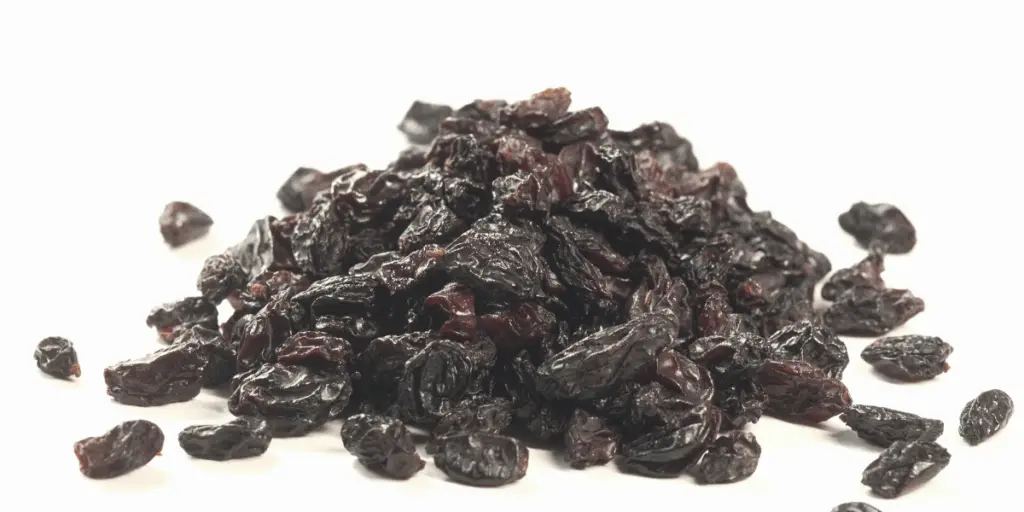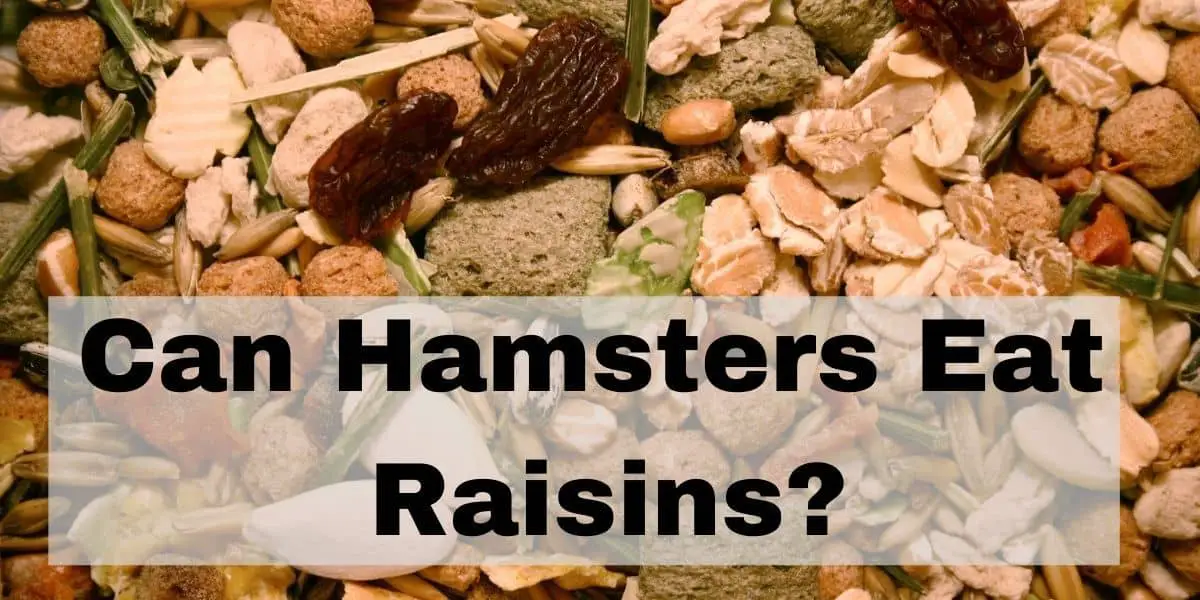Raisins are notorious for the bad effects they can have on cats and dogs if consumed, but what about hamsters? There aren’t any known cases of hamsters causing kidney damage in hamsters, but raisins should only be fed in moderation.
Some kinds of hamster shouldn’t have raisins at all.
Table of Contents
Why Do Hamsters Like Fruit?
Fruit is full of sugars and nutrients, and is often a rare treat in the wild – which means that hamsters often seem like they can’t get enough of it. Most hamsters are voracious fruit eaters, and will eat as much as they can get unless stopped.
As an owner, you need to provide fruit in moderation. Wild hamsters enjoy fruit, but they don’t usually get it in big quantities, so it’s important not to let your little furry friend pig out to its heart’s content.
Give your hamster fruit, but in controlled amounts, and not every day.
How Many Raisins Can A Hamster Have?
Remember that hamsters are very small, and what seems a tiny quantity to you is probably quite reasonable to them. Raisins also have a lot of their water content removed, which means that they are more concentrated versions of grapes.
In consequence, you should really limit how many raisins your hamster has. About half a raisin once a week should be sufficient, and any more might cause problems with your hamster’s digestion.
Nutrition Information
A quarter-cup of raisins contains:
- Calories: 108
- Protein: 1 gram
- Fat: 0 grams
- Carbohydrates: 29 grams
- Fiber: 1 gram
- Sugar: 21 grams
Raisins are a good source of:
- Iron
- Potassium
- Copper
- Vitamin B6
- Manganese
Which Hamsters Shouldn’t Have Raisins?
Some of the smaller breeds of hamster may struggle to cope with a raisin’s stickiness and high sugar content. It’s probably best not to feed raisins to dwarf hamsters, for example.
However, dwarf hamsters will certainly eat raisins if they get the opportunity, so be careful not to leave them anywhere your hamster might find them.
The bigger hamsters should be able to cope with raisins in small amounts, but it’s still not a good idea to offer them on a very regular basis. Make them a rare treat, and your hamster will enjoy them all the more.

How To Prepare Raisins For Hamsters
It’s always a good idea to wash any food you’re going to give your hamster. This goes for raisins too; it removes anything on the surface which might make your hamster poorly. Introduce raisins very slowly to your hamster’s diet, in small amounts.
Start off with a quarter of a raisin, or even less, and offer it to your hamster to see if it’s interested. It probably will be, as raisins have a strong scent and appeal very much to little hamster noses.
Even if your hamster likes the quarter, do not feed it anymore straight away. Wait a couple of days and keep an eye on your hamster’s stools and behavior.
Loose stools, diarrhea, or lethargy could indicate that the raisin has upset your hamster’s stomach a bit – yes, even a quarter raisin!
Once you’ve established that your hamster can digest raisins okay, you can start adding them to its fruit selection now and again, but only in halves.
Avoid giving your hamster whole raisins, no matter how much they love them or how tempting it is. You could make them sick by offering too many.
Keep An Eye Out For Raisin-Hoarding
Your hamster might decide to carry the raisin off and bury it, so keep an eye on this behavior. It’s normal, but you should be aware of when it’s happening and where your hamster puts the food so you can remove anything moldy.
You should also remove a hamster’s stocks if it’s piling up the fruit, as this prevents you from keeping on top of the quantities. If a hamster builds up a month’s worth of raisins, you need to remove them so it doesn’t then eat huge amounts at once.
If a hamster is storing rather than eating most of its food, it’s worth cutting back a bit on what the hamster is getting.
Encourage your hamster to eat the majority of its food rather than storing it away; if your hamster just hides treats, it may not be hungry, in which case you should reduce what it’s getting.
Cleaning out your hamster’s stockpile will stop it from eating moldy food, and will keep the cage environment cleaner.
Conclusion
Your hamster will certainly love raisins, but don’t give in to the temptation of letting them eat as many as they want. Raisins have very concentrated sugars, low water content – and dehydration is dangerous to hamsters – and are generally to be considered “junk food” to your little furry friend. Be responsible and keep them on a healthy diet.




